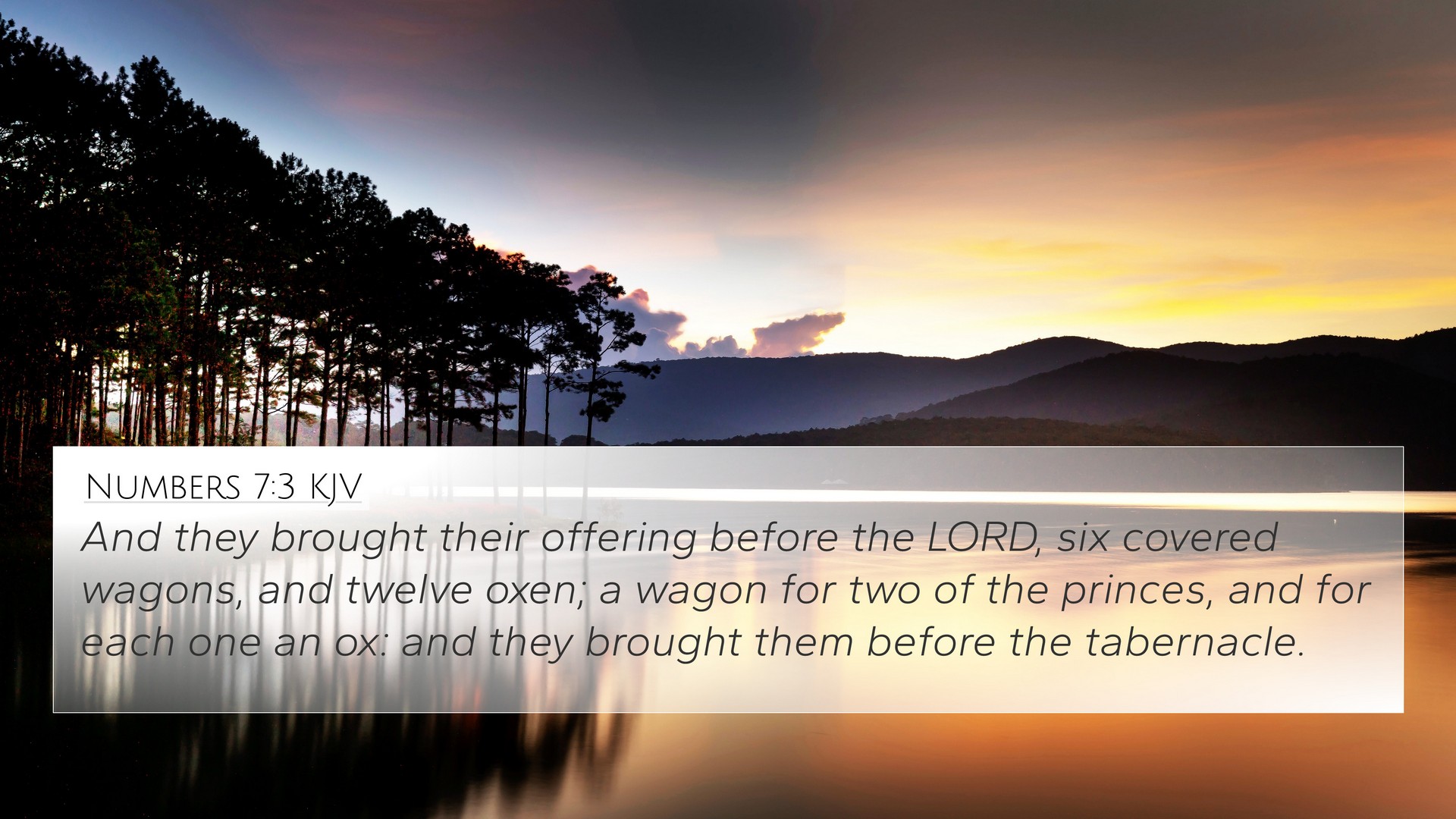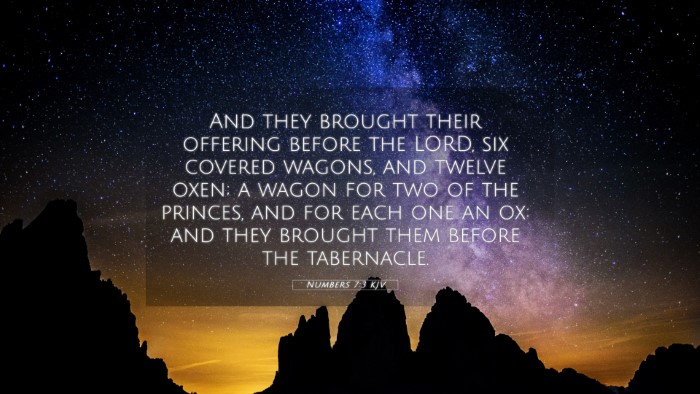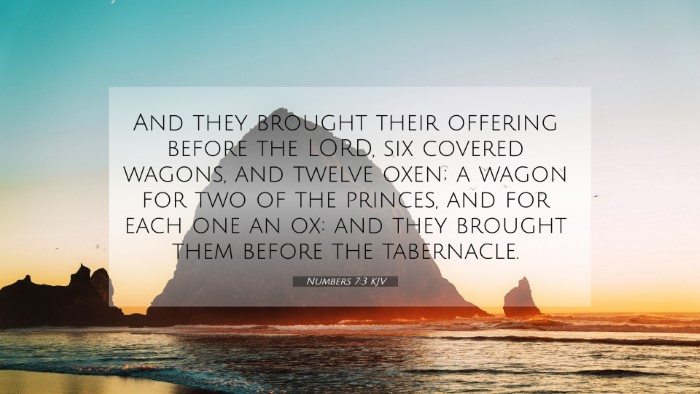Understanding Numbers 7:3
Verse: "And they brought their offering before the LORD, six covered carts and twelve oxen; a cart for every two of the princes, and for every one an ox: and they brought them before the tabernacle." (Numbers 7:3)
Overview of the Verse
This verse describes the offerings given by the leaders of Israel during the dedication of the tabernacle. The offerings included carts and oxen that were intended for the service of the tabernacle, emphasizing the role of the leaders in supporting God's work.
Thematic Elements of Numbers 7:3
Insights derived from notable public domain commentaries can deepen the understanding of this verse:
-
Matthew Henry:
Henry notes that the leaders’ offerings showcase a spirit of generosity and communal responsibility. Their willingness to contribute demonstrates that leadership in Israel was not only a position of authority but also one of service and sacrifice.
-
Albert Barnes:
Barnes emphasizes the significance of using valuable resources for the worship of God. The oxen and carts signify practical support for the Levites, enabling them to carry out their duties effectively, indicating the cooperative nature of communal worship.
-
Adam Clarke:
Clarke interprets this offering as a symbol of unity among the tribes. The exact number of items given—six carts and twelve oxen—reflects the organization and orderliness desired in the service of God, presenting a model for proper worship and support of God's servants.
Cross-References to Numbers 7:3
The following Bible verses relate to the themes and principles found in Numbers 7:3, showcasing connections between Biblical texts:
- Exodus 25:2: Highlights the importance of offerings from the people for the construction of the tabernacle.
- 1 Chronicles 29:3: Reflects on the example of King David's generosity in providing resources for temple construction.
- 2 Corinthians 9:7: Emphasizes that God loves a cheerful giver, aligning with the intentions behind sacrificial offerings.
- Acts 4:34-35: Illustrates the early church's communal support, drawing parallels to the unity and sharing among the Israelites.
- Leviticus 7:29-30: Discusses the offerings presented to the Lord, paralleling the dedication of resources to God's service.
- Philippians 4:18: Paul speaks of being well-supplied by the gifts of the Philippians, echoing the principles of support within God's ministry.
- Malachi 3:10: Talks about bringing the whole tithe to God's storehouse, reinforcing the importance of dedicated offerings.
- Matthew 5:16: Encourages believers to let their good deeds shine before others, similar to the public nature of offerings in Numbers.
- Romans 12:1: Urges believers to present their bodies as a living sacrifice, correlating to the offering spirit in Numbers 7.
- Hebrews 13:16: Encourages doing good and sharing with others, which reflects the themes of generosity exemplified in Numbers 7:3.
Connection to Broader Biblical Themes
The acts of generosity described in Numbers 7:3 not only emphasize the significance of physical offerings but also reveal a deeper spiritual truth about leadership, community, and commitment to God's work. These themes echo throughout scripture, indicating a cohesive narrative focused on the importance of giving, unity, and faithful service.
Tools for Bible Cross-Referencing
Understanding such connections between Bible verses enhances one’s study of scripture. Here are a few recommended tools:
- Bible concordance
- Bible cross-reference guide
- Cross-reference Bible study methods
How to Use Bible Cross-References
To deepen your understanding of the Bible:
- Explore the context of related passages.
- Analyze thematic connections between the verses.
- Utilize various Bible reference resources to enhance comparative studies.
Conclusion
In summary, Numbers 7:3 illustrates the spirit of contribution and responsibility in community worship, encouraging believers today to consider how their offerings—both material and spiritual—can support God's work in the world.


